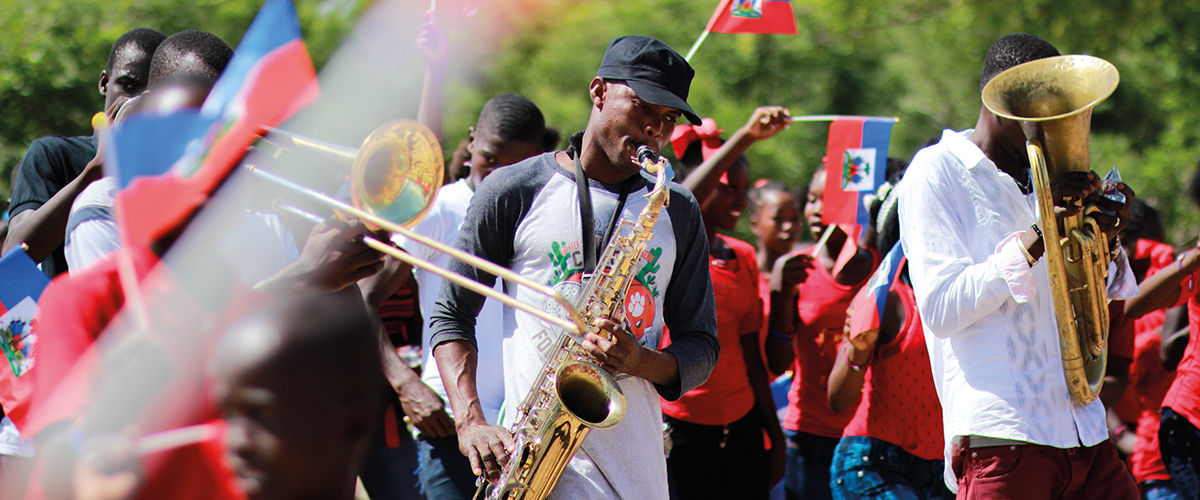
Learning from NGOs for Inclusive Development
Event details
What can we learn from research partnerships between researchers and NGOs? How can data collected by NGOs inform development research?
This workshop will introduce the IGDC’s NGO data project and explore the potential role of collaboration between different organisations.
We will welcome interdisciplinary speakers including Sara De Jong (Department of Politics), Ruth Kelly (Centre for Applied Human Rights/ActionAid) and Shabina Sadiq (The Leprosy Mission) to discuss the opportunities and challenges of researcher-NGO partnerships.
There will be lunch from 12:30 and the sessions will run from 13:00-15:30.
Programme
Date: 4 December 2018
Time: 12:30-15:30
Location: Tree House, Berrick Saul Building
12:30-13:00 Lunch
13:00 – 13:05 Introduction: Jean Grugel
13:05-13:30 Session 1: Valuing NGO Data and Partnerships: Academic perspectives
Chair: Eugenia Giraudo
- Matt Barlow and Alice Megaw (IGDC)– introduction to IGDC NGO data project
- Sara De Jong (Politics)- experience of NGOs in research as partners and ‘subjects’:
opportunities for collaboration and challenges
- Q&A
13:30-14:25 Session 2: Valuing NGO Data and Partnerships: NGO perspectives
Chair: Adrián Villasenor-Lopez
- Ruth Kelly (Centre for Applied Human Rights/ActionAid/Oxfam)
- Shabina Sadiq (The Leprosy Mission) Working together to leave no-one behind
- Q&A
14:25-14:30 Tea, coffee and cake
14:30-15:15 Session 3: Finding common ground and shared values
Chair: Henrice Altink
15:20-15:30 Round-up: Piran White
Speakers
IGDC NGO Data Project
Led by the IGDC’s co-directors, this scoping project explores questions such as ‘Can data held by
non-governmental organisations (NGOs) inform more inclusive research and policy in development?’
and ‘What are the key opportunities and challenges associated with NGO data?’ Secondary data play
an essential role in monitoring development and NGOs hold potentially ‘untapped’ information for
research and policy.
Initial focus areas include Risk and Resilience in the coastal Caribbean and Health Governance in
Eastern and Southern Africa. The research complements the IGDC’s existing AHRC and GCRF projects
Risk and Resilience in the coastal Caribbean and Thanzi la Onse. Including interdisciplinary
perspectives and experiences from a range of stakeholders is a key priority for the project. The team
is building new partnerships with researchers, NGOs and for-profit organisations globally.
Sara De Jong
Before joining the Politics Department at the University of York, Sara de Jong was a Research Fellow
at the Open University's Research Area Citizenship and Governance, where she co-led the ‘Justice,
Borders, Rights’ stream. She obtained her PhD in Politics (2010) from the University of Nottingham,
Centre for the Study of Social and Global Justice. She has held (visiting) fellowships at the University
of Vienna (EU FP7 Marie Curie Fellowship), University of Goettingen, the International Institute of
Social Studies (the Hague), the University of Leeds, the Jan van Eyck academy and the University of
Nottingham.
Her areas of interests include the politics of NGOs and (global) civil society; migration and refugees,
in particular support and advocacy initiatives; (post)colonialism, race and racism; gender, sexuality
and feminist politics; the role of brokers in international development, conflict and migration; co-
optation of radical politics and complicity
Ruth Kelly
Ruth Kelly’s doctoral research (Centre for Applied Human Rights, in collaboration with ActionAid)
looks at how storytelling and other vernacular cultural forms can open space for imagining and
promoting development alternatives. Ruth has more than ten years' experience working on human
rights, development, and international economic law and policy. She is currently deputy chair of the
Electoral Reform Society's governing Council (since January 2018) and was a board member of the
Trade Justice Movement from March 2015 to March 2018.
Before starting her PhD, she worked as programme policy manager with ActionAid UK, leading a
small team to carry out research and advocacy on alternatives to mainstream development models.
Her PhD project emerged out of broader discussions with colleagues across the ActionAid federation
about developing a programme of work on development alternatives that would be responsive to
the organisation's new focus on supporting social movements.
Ruth has also worked with Oxfam, UNDP and the European Commission, and with the Irish Refugee
Council and the French migrants' rights organisation La Cimade. In 2008-9 Ruth was a research
fellow at the MacMillan Center for international and area studies at Yale University, working on
international trade law and development. She holds a master’s degree in public international law
(LLM) from the University of Cambridge and a degree in law and French (LLB) from Trinity College
Dublin and Sciences-Po Paris
Shabina Sadiq, The Leprosy Mission
Shabina graduated with a BSc (Hons) Health sciences from the University of Northumbria and went
on to work for the charitable sector in the North of England. Working in the field of advocacy,
human rights for women and sexual health promotion for young people. Within these roles she
regularly trained frontline NHS, Social care staff on working with the vulnerable ‘at risk’ communities
and how to develop messaging on HIV and AIDs awareness. After working in the third sector,
Shabina moved into Public Health, working as Joint Commissioner in Health for Oxfordshire NHS
Trust and County Council. She led teams and developed programmes on safeguarding, health service
access solutions, sexual health educational programmes through the schools, all aimed at supporting
vulnerable young people and families. Later, she would study and gain her MSc (Hons) International
Development with Philanthropy and taking the learning from the national programmes joined The
Leprosy Mission in 2016, to develop programmes advocating for the right of people affected by
leprosy and to develop partnerships with institutions to raise the awareness of leprosy
internationally.
Contact
Alice Megaw